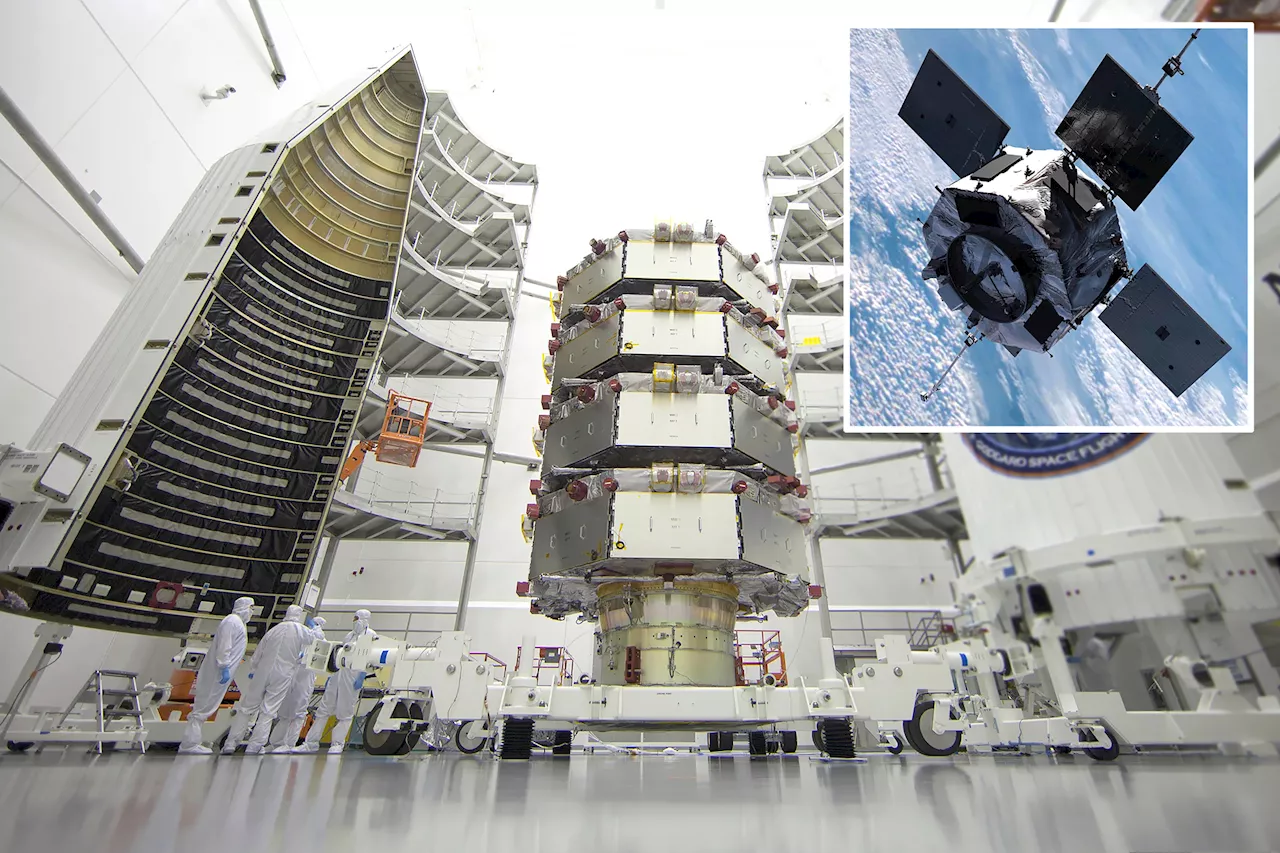Physicists at the University of Southampton are developing an experiment to detect dark matter using levitating sheets of graphite in microgravity. The experiment, set to launch aboard the Jovian-1 satellite in 2026, aims to detect a 'dark wind' pushing on the levitated particles if dark matter exists at a high enough density.
At the University of Southampton in the UK, physicists are testing an apparatus that involves levitating sheets of graphite in microgravity to look for tiny anomalies that could point to the nature of this elusive substance.
"There are lots of theories as to what dark matter might be but no experiment on Earth has ever come close to detecting it." We can tell this by looking at things like the rotation of the outer parts of galaxies, which is way higher than it should be based on their mass, orBut we don't know what dark matter is. We can't detect it directly. It doesn't give off any light, or interact with the Universe that we can tell, other than its gravitational impact. We may never know what it is, but scientists are not going to let it go without exhausting every possible avenue of inquiry.
"Our experiment is unlike anything attempted before: we'll be levitating graphite between magnets which, in zero gravity, are incredibly sensitive to small forces,"
DARK MATTER SPACE EXPERIMENT GRAVITY MICROGRAVITY GRAPHITE
United States Latest News, United States Headlines
Similar News:You can also read news stories similar to this one that we have collected from other news sources.
 Scientists detect mysterious 'bird calls' in an unexpected part of spaceToday's Video Headlines: 01/25/25
Scientists detect mysterious 'bird calls' in an unexpected part of spaceToday's Video Headlines: 01/25/25
Read more »
 Chinese Scientists Develop Underwater Sensor to Detect AircraftChinese researchers have made a breakthrough in underwater detection technology by developing a new sensor capable of detecting aircraft from miles away. This innovative technology, which utilizes a specially designed acoustic sensor array, could significantly enhance the capabilities of the People's Liberation Army navy, particularly its submarine fleet.
Chinese Scientists Develop Underwater Sensor to Detect AircraftChinese researchers have made a breakthrough in underwater detection technology by developing a new sensor capable of detecting aircraft from miles away. This innovative technology, which utilizes a specially designed acoustic sensor array, could significantly enhance the capabilities of the People's Liberation Army navy, particularly its submarine fleet.
Read more »
 Scientists Detect Endangered Mexican Long-Nosed Bats Using Saliva SamplesResearchers have successfully identified the endangered Mexican long-nosed bat in southeastern Arizona through a non-invasive method involving environmental DNA (eDNA) analysis of saliva samples left on plants and hummingbird feeders. This discovery expands Arizona's bat species list and provides a valuable tool for monitoring and protecting this important pollinator.
Scientists Detect Endangered Mexican Long-Nosed Bats Using Saliva SamplesResearchers have successfully identified the endangered Mexican long-nosed bat in southeastern Arizona through a non-invasive method involving environmental DNA (eDNA) analysis of saliva samples left on plants and hummingbird feeders. This discovery expands Arizona's bat species list and provides a valuable tool for monitoring and protecting this important pollinator.
Read more »
 Tumor DNA in the blood can predict lung cancer outcomeScientists have found that a test to detect circulating tumor DNA can predict lung cancer outcome.
Tumor DNA in the blood can predict lung cancer outcomeScientists have found that a test to detect circulating tumor DNA can predict lung cancer outcome.
Read more »
 Colorado State Parks Aim for Dark-Sky CertificationTwelve Colorado state parks, including three national parks and three national monuments, are pursuing certification as dark-sky places from DarkSky International. DarkSky Colorado is providing technical support and guidance to the parks through the application process.
Colorado State Parks Aim for Dark-Sky CertificationTwelve Colorado state parks, including three national parks and three national monuments, are pursuing certification as dark-sky places from DarkSky International. DarkSky Colorado is providing technical support and guidance to the parks through the application process.
Read more »
 Scientists find hints of the dark universe in 3D maps of the cosmosKeith Cooper is a freelance science journalist and editor in the United Kingdom, and has a degree in physics and astrophysics from the University of Manchester.
Scientists find hints of the dark universe in 3D maps of the cosmosKeith Cooper is a freelance science journalist and editor in the United Kingdom, and has a degree in physics and astrophysics from the University of Manchester.
Read more »
